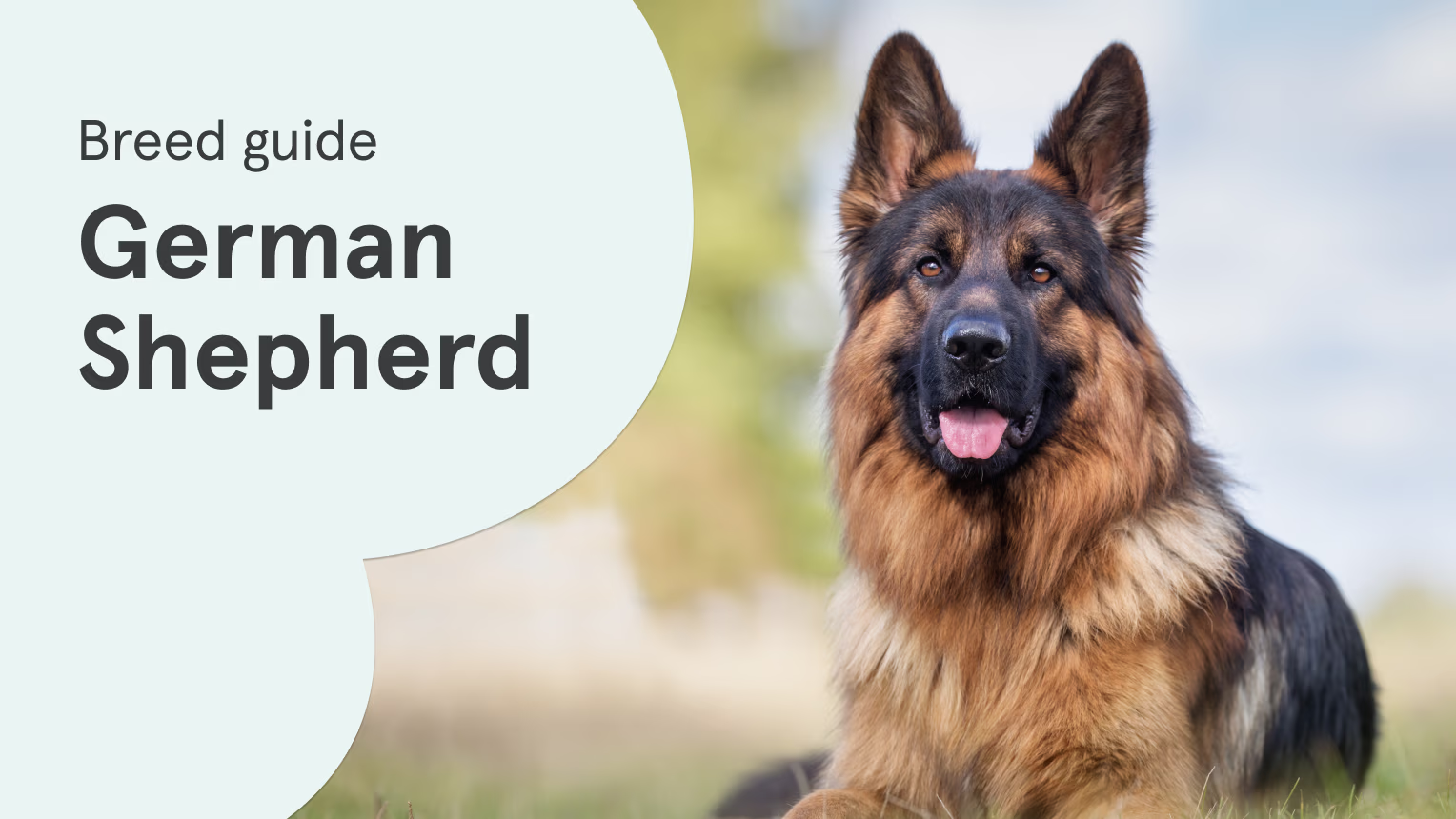The Ultimate Guide to German Shepherds: Traits, Training, Care, Pros & Cons, and Price
The German Shepherd is one of the most recognizable and revered dog breeds in the world. Known for its intelligence, loyalty, and versatility, this breed is a favorite for families, police forces, and working roles alike. In this detailed guide, we will explore everything you need to know about German Shepherds, including their behavior, training, care, advantages and disadvantages, and expected costs.
Breed Overview
| Trait | Details |
|---|---|
| Breed Name | German Shepherd |
| Size | Large |
| Weight | 50–90 lbs (22–40 kg) |
| Height | 22–26 inches (55–65 cm) |
| Lifespan | 9–13 years |
| Temperament | Loyal, Intelligent, Protective |
| Coat Type | Double coat (medium length) |
| Shedding Level | High |
| Activity Level | High |
| Average Price | $800–$2,500 USD |
Behavior Traits
German Shepherds are well-known for their:
- Loyalty: They form strong bonds with their family and are often protective.
- Intelligence: Ranked among the top three most intelligent breeds.
- Trainability: Extremely eager to learn and perform tasks.
- Confidence: Bold and courageous, especially in protective or working roles.
- Sociability: Generally good with children and other pets if socialized early.
How to Train a German Shepherd
Training a German Shepherd requires consistency, patience, and positive reinforcement. Here’s a step-by-step guide:
1. Start Early
Begin training as early as 8 weeks old. Puppies are like sponges and will quickly pick up basic commands.
2. Socialize Extensively
Expose your dog to different people, sounds, environments, and other pets. This prevents aggressive or anxious behaviors.
3. Use Positive Reinforcement
Reward-based training (treats, praise, play) is more effective than punishment. They thrive on encouragement.
4. Teach Basic Commands
“Sit,” “Stay,” “Come,” “Heel,” and “Leave it” are essential. Use clear, firm commands and reinforce regularly.
5. Provide Mental Challenges
Use puzzle toys, agility courses, and obedience exercises to prevent boredom.
6. Enroll in Advanced Training
Consider professional obedience or protection training for older puppies and adults.
How to Care for a German Shepherd
Caring for a German Shepherd involves commitment to physical, emotional, and medical needs.
1. Diet & Nutrition
- Feed a high-protein, quality dog food.
- Adjust portion sizes to match age, activity level, and weight.
- Avoid overfeeding to prevent obesity and joint issues.
2. Exercise Needs
- Require at least 1–2 hours of physical activity daily.
- Enjoy walks, fetch, running, agility, and obedience work.
3. Grooming
- Brush 2–3 times a week; daily during shedding season.
- Bathe occasionally using dog-safe shampoo.
- Trim nails and clean ears regularly.
4. Veterinary Care
- Routine checkups every 6–12 months.
- Vaccinations, flea/tick prevention, and dental care are essential.
- Be alert to common health issues such as hip dysplasia and bloat.
Common Health Issues
While generally healthy, German Shepherds are prone to certain conditions:
- Hip and Elbow Dysplasia: Genetic joint issues.
- Degenerative Myelopathy: A progressive spinal disease.
- Bloat (Gastric Dilatation-Volvulus): A serious digestive condition.
- Allergies: Food or environmental sensitivities.
Regular vet visits, proper breeding, and preventive care can minimize risks.
Pros and Cons
Pros
- Highly intelligent and easy to train.
- Loyal and protective.
- Great for active families or working roles.
- Strong, athletic, and hardworking.
- Adaptable to many living environments (with enough space).
Cons
- Requires significant exercise and mental stimulation.
- Heavy shedder, especially during seasonal changes.
- May develop behavioral issues if under-stimulated.
- Prone to health issues without responsible breeding.
- Needs a confident, experienced handler.
Cost Breakdown
Initial Cost
- Puppy Purchase: $800–$2,500 (from a reputable breeder)
- First Year Expenses: $1,200–$2,000 (vaccinations, neutering, supplies)
Ongoing Costs
- Food: $400–$800/year
- Vet Care: $200–$600/year (routine)
- Insurance (optional): $300–$700/year
- Grooming: $200–$500/year (if done professionally)
Is the German Shepherd Right for You?
If you’re looking for a dog that is intelligent, trainable, loyal, and capable of both protection and affection, the German Shepherd is a top contender. However, they require a lot of time, space, training, and stimulation. Ideal for experienced dog owners, they thrive in active households and are particularly suited to working environments.
Conclusion
The German Shepherd is more than just a dog — it’s a companion, protector, and partner. With proper care, training, and love, this noble breed will return your investment tenfold in loyalty, service, and affection. Make sure you’re ready for the responsibility, and you’ll gain a lifelong friend who always has your back.




